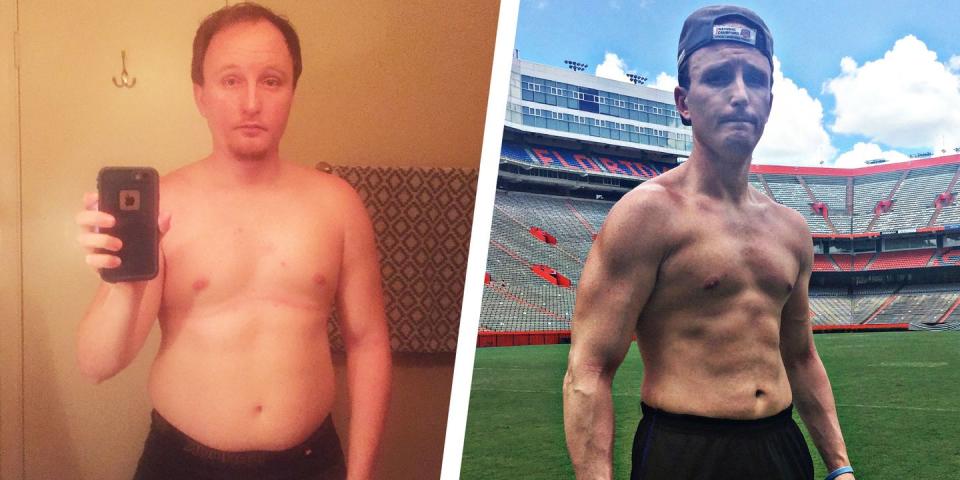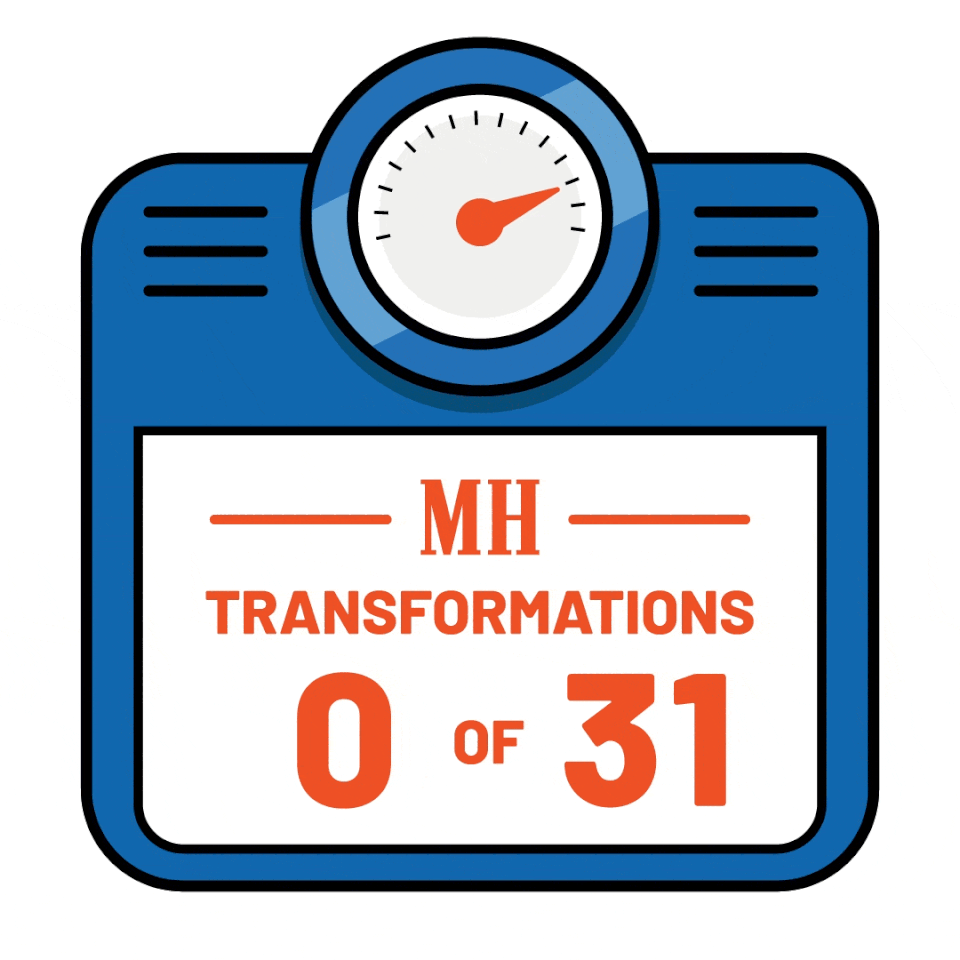This Lifelong Athlete Took Things Slow for Once—and Lost 60 Pounds

When Kevin Conner, 32, a lifelong recreational baseball player, couldn’t make it to first base, he knew he needed to make a shift. This is his story, as told to Maria Masters.

I was big into sports for most of my life: I played baseball since age 5, and in high school, I played football and baseball. But I stopped exercising when I went grad school—I was attending both law school and business school at the same time. I would go to class from 8:00 a.m. to 6:00 p.m., and then at night, I would do homework. If I had any free time, it was spent hanging out with friends instead of working out or doing anything active. And I was so busy with school that I didn’t have time to cook—I just grabbed fast food because it was easy.
The weight crept up slowly.
I noticed my clothes fitting tighter—especially suits, which I had to wear fairly often. But when I looked in the mirror, I always told myself that it was minor, or that it wasn’t that big of a deal. It was so easy to ignore, because I was so busy. I just said, ‘Oh yeah, there’s a few extra pounds there; I’ll burn it off when I don’t have class.’
Now, I couldn’t run to first base.
In 2016, I graduated from law school and started slowing down. I realized that, health-wise, things were really different. I used to be the guy who enjoyed going out and being active, but now I was the guy who couldn’t handle anything. I had really severe back and knee pain, and I’d be winded just climbing up the stairs. Then, when I started doing recreational baseball again, I could barely run to first base. That’s when it clicked that things were not where they should be.
I realized I had to do things differently.
When I turned 30 in January of 2017, I picked up a diet book that said, “take things slow, don’t try to do it all at once.” That really resonated with me. Being an athlete, I always wanted to compete at the top level of my abilities, but when you weigh more than you ever weighed—I was 220—you can’t do that. I realized I just needed to get outside every day and walk or do something that would help me get into shape.
Once I noticed I was making progress, I was motivated to make a full routine of it: I started running twice a week and using resistance bands and dumbbells three times a week. At first, it took me 10 minutes to run one mile, but a month later, I was down to an 8-minute mile. I made it a goal to run a little farther and faster each day, so that by mid-February, I was running 2.25 miles at a stretch. I set a goal to run a 5K, then a half marathon, which I ultimately did on Thanksgiving [of 2017]. I also started combining strength training and cardio—I would go to University of Florida's football stadium and run the stairs, then do push-ups on the bleachers. (Those workouts have definitely shown up on my Instagram feed (@intellectualphysique))
Alcohol and sweets went first.
I used to eat terribly, but I started slow, removing one bad item at a time. I had tried dieting in the past, but I used to take away all of the bad things at once, and my body would just crave them, so it wouldn’t last very long. This time, I started really slowly; I removed almost all alcohol and sweets from my diet, and once my body got over that, I would try to cut carbs, and so on.
Now, my typical diet is pretty much the same every day: I usually have two eggs, some form of lean protein like turkey or chicken, and a half a cup of fruit for breakfast. For lunch, I have chicken or turkey and then about a half a cup of vegetables; for dinner, I have fish or chicken, a half cup of vegetables, and some quinoa. And my staple, which has cured my sweet tooth, is peanut butter. I eat a tablespoon of peanut butter—that’s a big treat to myself.
It’s more than "just losing weight."
In the past, if I woke up at 8:00 a.m. for work, I was exhausted by 1:00 p.m. and ready to call it a day. Now, working out has made me feel so much better—if I wake up at 5:00 or 6:00 a.m., I have energy all day and still work out later on.
It started as being a weight loss goal, and then I realized that there are all these other accomplishments that you hit while working out—whether it be lifting more weight or running further or faster than you ran before. I constantly set goals every week; when I achieve one, I set another.
You Might Also Like

